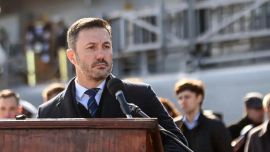Argentina's unofficial exchange rate reached an all-time low against the dollar on Monday after President Alberto Fernández indicated the country may be preparing to turn on the printing presses to revive the economy.
The cash settlement rate traded at 102.54 pesos per US dollar on Monday, after closing the previous week at 94.9. On Monday, it showed the highest difference between the official rate and the unofficial rate since 2015.
The Peronist leader told Perfil over the weekend that the country needed a Marshall Plan-type solution to the crisis and that stimulating growth is more urgent than containing inflation. The comments added to uncertainty about Argentina's economic crisis as it seeks to restructure debt in the midst of a nationwide quarantine – now extended to April 26 – to stop the spread of the coronavirus.
"President Alberto Fernández's team rushed to announce a battery of fiscal stimulus measures to soften the effects of the Covid-19 quarantine," wrote analysts at Portfolio Personal Inversiones in Buenos Aires, including Joaquín Bagues. "Without access to the market, printing money is the only way to finance these policies."
Argentina is trying to renegotiate foreign debt with private creditors, while managing a national lockout that has frozen an already weak economy.
The cash settlement rate is calculated from the difference between Argentine local share prices and the ADRs of the same companies. It became popular again after the government imposed capital controls in 2019 to stop a fall in the peso and protect Argentina's international reserves. The official exchange rate is currently 65.4 to the dollar.
Cash inflows and liquid positions are likely to increase as the crisis deepens and uncertainty grows, according to Alejandro Cuadrado, a currency strategist for BBVA in New York.
"The growing deficit will require more financing and bond issuance," Cuadrado says. "Fundamentals will continue to drive" the unofficial exchange rate.
by Bloomberg/Sarah Pabst


















Comments